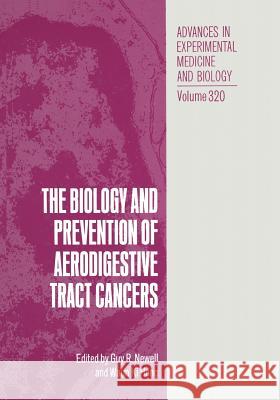The Biology and Prevention of Aerodigestive Tract Cancers » książka
The Biology and Prevention of Aerodigestive Tract Cancers
ISBN-13: 9781461365365 / Angielski / Miękka / 2012 / 172 str.
The papers contained in this volume were presented ati the Golden Jubilee Cancer Prevention Conference, "The Biology and Prevention of Aerodigestive Tract Cancers," sponsored by The University of Texas M. D. Anderson Cancer Center in Houston, Texas, February 21-23, 1991. The purpose of the conference was to further the understanding of the biology, epidemiology, and prevention of aerodigestive tract cancers. Advances in under- standing the biology of aerodigestive tract cancers have led to successful early chemoprevention trials. Chemopreventive agents in current use are capable 9f reversing premalignant lesions, as well as reducing the number of second primary cancers of the head and neck. These trials hold the promise that effective prevention methods for these cancers will be forthcoming in the foreseeable future. Carcinogenic exposures appear to affect the entiry epithelial lining of the upper aerodigestive tract, a phenomena described as "field cancerization. " This process contributes to the development of both synchronous and metachronous aerodigestive tract cancers. It also provides a sound rationale for the chemoprevention of these cancers. Animal models are important for identifying the critical components of field cancerization and for testing potentially new chemopreventive agents and regimens. The hamster lung carcinogen- esis model and the hamster cheek model are discussed. Aerodigestive tract cancers account for about 20% of newly diagnosed invasive cancers. Cigarette smoking and alcohol consumption are the most important risk factors for these cancers.











